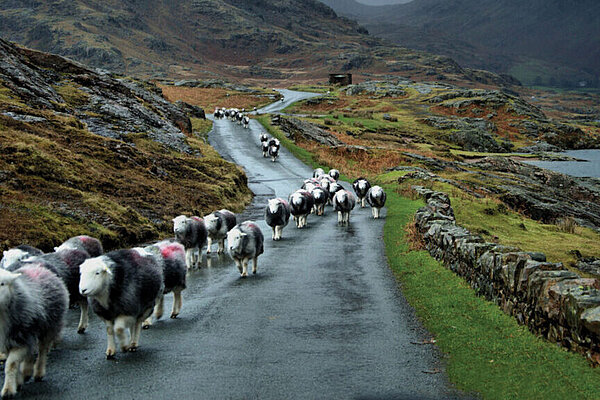LibDems press for Better Support
for Farmers in Wales
Baroness Humphreys of Llanwrst spoke forcefully in the Rural Affairs debate about an issue that is of crucial importance to people in the communities of Bangor Aberconwy.
Farmers are the mainstay of our rural communities - particularly in Wales. They are the guardians of language and culture, but some are struggling and wonder how long their farms will survive.
An immediate injection of £1bn into agricultural and horticultural budgets – investment in technology, training and productivity improvements – would support sustainable domestic food production and bring down prices in the long run.
Botched Trade Deals need to be renegotiated – for example, the Australian sheep meat trade deal which undercuts British standards.
If the government wants to ‘make Brexit work’ it needs to scrap the arbitrary salary thresholds on visas, so British farming, fishing and food processing can recruit the workers they need.
This is what she said:
Like many who will speak in this debate today, I live in a rural area.
My hometown is a small market town in the Conwy Valley in North Wales and is four miles north of the tourist honeypot village of Betws y Coed. Llanrwst is sometimes referred to as the ‘capital’ of the valley and is an ancient market town which grew up alongside the wool trade. It has a proud history of independence, of clock makers, harp makers and Welsh poets.
Today, it is still the focal point for residents of villages and farms for a wide area, with people travelling-in for work and shopping needs - and for the farmers’ livestock market.
Central to rural life are, of course, our farmers and our farming communities.
For the Liberal Democrats, there are 3 main priorities which we would want to see tackled in the next 2 years in the form of a rescue plan for farmers - extra funding for the agricultural budget, the renegotiation of botched overseas trade deals and addressing the worker shortages blighting the sector.
There should be an immediate injection of £1bn into agricultural and horticultural budgets to further support sustainable domestic food production. Our farmers already produce exceptional food but funds are needed towards productivity improvements and training and technology to bring down prices for the long-term.
A priority should be the renegotiation of the Australian trade deal to ensure that British standards aren’t undercut.
In just the first year of implementation of this deal, Australian sheep meat exports to the UK surged by 85%, reaching over 16,000 tonnes - with the potential, after 10 years, that the tariff-free quota will be eliminated completely leading to our market potentially being flooded with unrestricted Australian imports.
The government should introduce legislation to guarantee British standards on animal welfare - the current trade deal allows for imports from systems using practices banned in the UK. The practice of live lamb cutting remains widespread in Australia but was banned in the UK in 2010.
Those British standards should also include environmental protection and the requirement to meet climate change commitments.
The new government, if they want to ‘make Brexit work’, should consider letting farmers, fishers and the food processing sector recruit the workers they need to boost our food supply by scrapping arbitrary visa salary thresholds.
According to the NFU, a shortage of workers caused £60m worth of fruit and vegetables to go to waste in the first half of 2022.
Farmers are the mainstay of our rural communities and particularly so in Wales. They are the guardians of our language and culture, but some are struggling and wondering how long their farms will survive.
How does the Minister see the future of farming in the UK?
